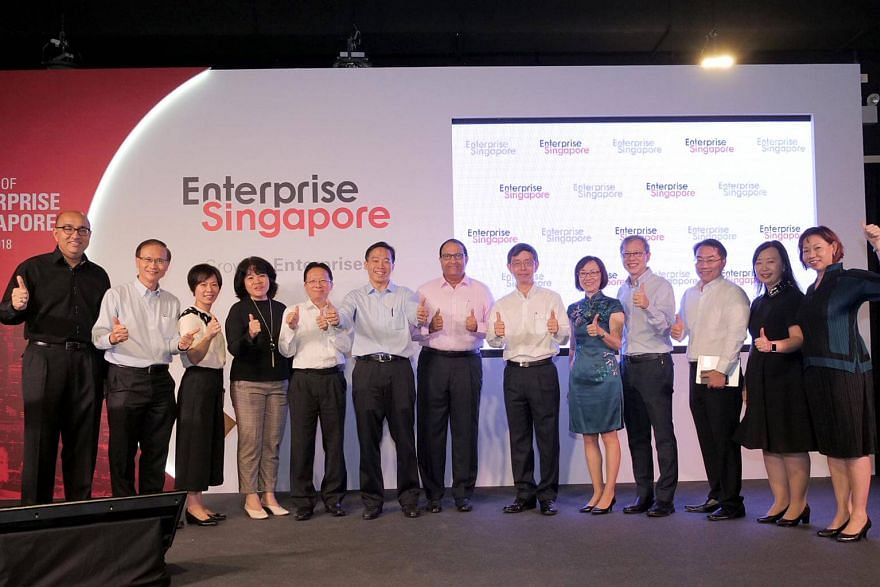1.Accounting and Corporate Regulatory Authority (ACRA)
The Accounting and Corporate Regulatory Authority (ACRA) is the national regulator of corporate entities and public accounting in Singapore, and all new business registrations need to be done through ACRA.
To apply for a registered company to engage in commercial activities, except for special industries that need to apply to the government management department, the establishment of the company must be registered with the bureau.
On their website, there are various helpful guides on how to prepare financial statements, annual statements, start a local business, and more. Their responsibilities are: overseeing corporate compliance with disclosure requirements and oversight of statutory audits by public accountants.
ACRA reports and advises the government on all matters relating to the registration and regulation of business entities, public accountants and corporate service providers; Establish and manage repositories of documents and information relating to commercial entities, public accountants and corporate service provision, and provide the public with access to such documents and information.
2. Inland Revenue Authority of Singapore (IRAS)
The Inland Revenue Authority of Singapore (IRAS) is responsible for administering tax for the government, assessing tax, collecting tax and enforcing the payment of tax.
Taxes in Singapore are roughly divided into two categories: personal income tax and corporate income tax. Personal income tax can be declared electronically or by paper; corporate income tax can be declared through the website or other channels, and consumption tax must be declared through the tax bureau website.

3. Enterprise Singapore
In April 2018, International Enterprise Singapore and SPRING jointly established Enterprise Singapore. Enterprise Singapore is to promote the development of enterprises, committed to the construction of enterprises, and cooperate with international companies. As the national standards and certification body, Enterprise Singapore has been building trust in Singapore’s products and services through quality and standards to support Singapore’s growth as a global hub for trade and entrepreneurship.
Enterprise Singapore works together to support business growth, from start-ups to SMEs and high-growth businesses.
At the same time, Enterprise Singapore works with a wide range of local and overseas partners to enhance corporate competitiveness and gain new market share through upgrading and innovation, adopt new technologies to improve productivity, facilitate overseas market expansion, and strengthen leadership Capacity building talent pool.

4. Ministry of Manpower Singapore (MOM)
The Ministry of Manpower Singapore is the government department responsible for foreign workforce management. Divided by functions, there are four divisions of labor relations/labor welfare/labor policy and administrative services, the Central Provident Fund Board, and the National Wages Council.
That is to say, we all need to obtain work approval from the Ministry of Manpower before working in Singapore; LOCs including DP (Dependent Pass) and LTVP (Long Term Visit Pass) work also need to be applied to MOM.
Singapore’s work visa is mainly divided into E pass, S pass, WorkPermit. The application process for Ep and Sp is exactly the same. The employer applies to MOM. You only need to provide the required information to the employer or labor agency; the only difference is that the registration location by fingerprint and photo is different.
MOM has two centers, one for EP and one for SP and WP.
EmploymentPass Services Centre: The Riverwalk, 20 Upper Circular Road, #04-01/02, Singapore 058416
MOMServices Centre: 1500 Bendemeer Road, Singapore 339946
5. Centre Provident Fund Board (CPF)
The Central Provident Fund Board of Singapore is responsible for the management and operation of the entire provident fund.
Provide a series of provident fund plans for Singapore citizens and PRs, including not only pension insurance, but also housing, medical care, education, investment and other aspects.
CPF payment is to pay attention to:
The CPF of the current month needs to be paid by the 14th of the next month at the latest; late payment will require a fine of not more than SGD 10,000 and imprisonment.
When paying, you need the front and back of your IC (IC number, nationality, race, date of birth, etc.) and the monthly summary salary.
If you are interested in our services, please feel free to contact us and we can also provide you with a custom quote.
